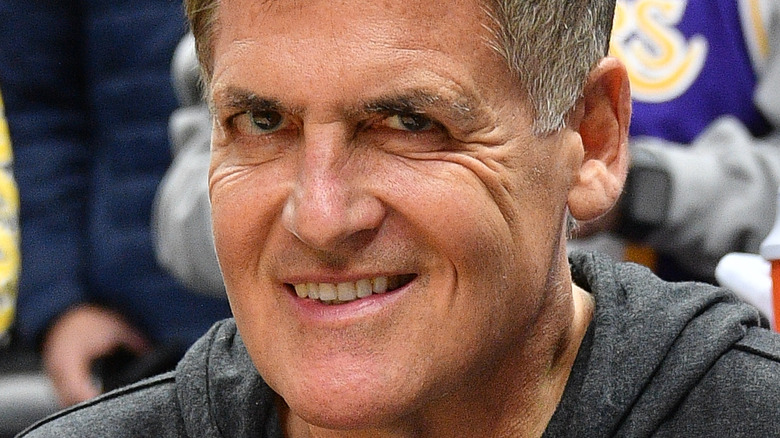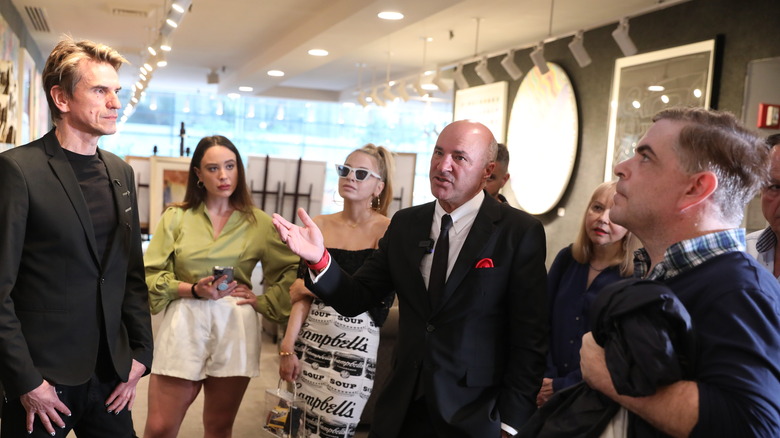What Happens After A Shark Tank Entrepreneur Lands A Deal?
It's the moment every entrepreneur dreams about — making a deal on "Shark Tank." After years of pouring blood, sweat and tears into their business, it's going to be smooth-sailing from here on out with one of the wealthy investors on board — or is it?
Since 2009, "Shark Tank" has changed the lives of countless individuals. The show's set of investors includes the likes of Lori Greiner, Mark Cuban, Daymond John, and Kevin O'Leary, who are willing to offer their endless resources and years of experience to a hard worker whose business shows signs of making an impact. The process isn't easy for either side. For entrepreneurs, if you're lucky enough to even get on the show (via USA Today), you have to answer tough questions during a pitch so anxiety-inducing, the show has an actual psychiatrist on hand after presentations. Meanwhile, the sharks are given no information beforehand about any of the entrepreneurs (via Forbes), so they must get to know the business owners as well as possible in the time given to determine if the investment is worth it.
So when that magical moment happens — where entrepreneur and investor finally click — it would seem that both sides could confidently work with one another for the foreseeable future. But as it turns out, there's a little more that could make the deal sink or swim.
The Sharks know how to sniff out a good deal
As intense as the experience of pitching on "Shark Tank" can be, the aftermath of getting a shark on board isn't much different. The set of investors have already put a lot of trust in the businesses they agree to invest in, but before any official legal documents get signed, there's still more digging to do in order to determine who's a hero and who's a zero.
Longtime "Shark Tank" investor Lori Greiner told CNBC that it's crucial that the sharks know more about what they're getting themselves into. "It's a handshake deal, so we have to learn more," she said. "My due diligence team gives me a nice report on everything about the company, and then we all sit down and determine what would be best for everybody." This and the subsequent paperwork phase can ultimately be what makes or breaks a deal. In an interview with The Motley Fool, investor Robert Herjavec shared his experience after investing in ChordBuddy during the show's third season. "My team reaches out to him and says, 'Can you send us your financial statement?' I'm not exaggerating: A box of receipts showed up ... and we're like, 'Where's your income statement? Are you audited?' He was like, 'What's that?'"
In recent years, the process of picking out entrepreneurs has become stricter, which has led to an 80% success rate in closing deals, as investor Daymond John told Business Insider.

